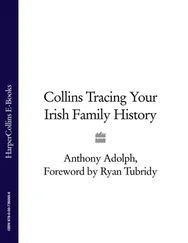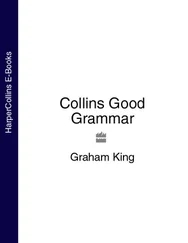The language of officialdom can obliterate all meaning. Feel the undergrowth closing in as you try to fight your way out of this trap dug by the former Department of Health and Social Services . . .
The Case of the Crippled Sentence
A person shall be treated as suffering from physical disablement such that he is either unable to walk or virtually unable to do so if he is not unable or virtually unable to walk with a prosthesis or an artificial aid which he habitually wears or uses or if he would not be unable or virtually unable to walk if he habitually wore or used a prosthesis or an artificial aid which is suitable in his case.
This would-be ‘sentence’ first of all reflects the legalistic terror of official punctuation: the full stop or comma which, if misplaced, might lead the Department all the way to a House of Lords appeal. And, second, it ignores or offends half the population – women – by exclusively using the masculine pronouns he and his .
So let us take our machete to the undergrowth, bring in the mine detectors and wire-cutters, and try to discover what, if anything, this passage struggles to convey. A step at a time, too, for fear of booby traps.
A person shall be treated as suffering from physical disablement . . . treated?
This is not intended as medical advice, but since the context is medical the reader may, however briefly, be confused. Lift out treated and replace with considered . Throw treated into the shrubbery.
Suffering from physical disablement . Why not simply physically disabled ? And while we are at it, we don’t need as after considered . Toss that into the shrubbery too.
So far, in our cleaned-up version, we have ‘A person shall be considered physically disabled’ – and we don’t seem to have lost any of the intended meaning.
Such that he is either unable to walk or virtually unable to do so. Wrench away the clumsy such that he is and replace it with which makes him (we’ll come to the offending pronouns later). Next, we cut out either, because we don’t need it.
We now have which makes him unable to walk, or virtually unable to do so. This can be more tightly expressed as which makes him, unable, or virtually unable, to walk.
Peering into the darkening thicket we next tackle if he is not unable or virtually unable to walk with a prosthesis or an artificial aid which he habitually wears or uses . . . Stop! The rest is just the gibbering of jungle monkeys. This seems to mean that the person can get around, but only with the help of a prosthesis or other artificial aid. The word even, before if he is not, would have helped. But we really do not need this tangled heap of words at all.
The entire ‘sentence’, if it means anything, must surely mean this:
A person is regarded as physically disabled if he or she always needs an artificial aid to walk.
We can of course replace the masculine and feminine pronouns with that person :
A person is regarded as physically disabled if that person always needs an artificial aid to walk.
As you can see, the meaning remains clear. But what about the prosthesis, you may ask. Well, there are thousands of people with prostheses in the form of replacement hips and knees and other artificial body parts who are bounding about without the least need of any artificial aids – wheelchairs, zimmers and walking sticks – so the amended versions are perfectly valid.
The Case of the Crippled Sentence is a prime example of the need to think ‘What do I want to say?’ And then to say it, the simple way.
A serious case of effluxion
Here’s a verbal smokescreen from a London borough council:
A nd take further notice that under the provisions of Section 47(2) of the said Housing Act 1974 in relation to any land consisting of or including Housing Accommodation in a Housing Action Area a landlord must not less than four weeks before the expiry by effluxion of time of any tenancy which expires without the service of any Notice to Quit, notify the council in writing that the tenancy is about to expire in accordance with the said Schedule 4 . . .
This is a model of mixed officialese and legalese: you can almost see the glint of watch-and-chain on the Town Clerk’s egg-stained black waistcoat. How do we turn it into something like English, without losing any legal force the passage might be required to have?
For a start, there appears to be no need for And take further notice. If the reader is not going to take notice, there seems little point in the writer’s finishing this masterwork. Next: under the provisions of Section 47(2) of the said Housing Act 1974 – the words the provisions of are redundant. Let’s lose them. The same goes for said.
And next: in relation to any land consisting of or including. The lawyers can keep their consisting of or including, just in case they are struggling to cover, say, a backyard or front garden where someone lives in a caravan. But in relation to can be shortened to concerning. We have now brought concerning clumsily close to consisting, so let us replace consisting of with that consists of. The word Accommodation after Housing is not needed. And once Housing is left standing by itself, the capital H becomes even more obviously unnecessary.
Plodding on: a landlord must not less than four weeks before the expiry by effluxion of time . . . Quickly to the dictionary – to seek out the meaning of this excitingly unfamiliar word, effluxion. We find:
Efflux, n. Flowing out (of liquid, air, gas; also fig.) That which flows out. Hence effluxion, n. See effluence, n.
From its meaning the word certainly suits the prose style, if nothing else. But we can do without effluxion. And we can also do without expiry.
Now, what is the rest of the message? It seems that in a Housing Action Area, if a landlord knows that a tenancy is running out and no notice to quit is needed, he must warn the council, in writing, at least four weeks before that tenancy is due to end. So let’s tack that information on to our earlier repair:
Under Section 47(2) of the Housing Act 1974, concerning any land that consists of or includes housing in a Housing Action Area, if a landlord knows that a tenancy is due to end without need of a notice to quit, he or she must tell the council, in writing, at least four weeks before the tenancy runs out.
The passage is no nail-biter and is still scarcely slick or smooth. But it is quite readable and clear and certainly less forbidding than the original mess.
How axiomatic is your bus shelter?
Here’s a letter from the West Yorkshire Passenger Transport Executive:
I refer to your recent letter in which you submit a request for the provision of a bus passenger shelter in Ligett Lane at the inward stopping place for Service 31 adjacent to Gledhow Primary School. The stated requirement for a shelter at this location has been noted, but as you may be aware shelter erection at all locations within West Yorkshire has been constrained in recent times as a result of instructions issued by the West Yorkshire Metropolitan County Council in the light of the Government’s cuts in public expenditure and, although it seems likely that the Capital Budget for shelter provision will be enhanced in the forthcoming Financial Year, it is axiomatic that residual requests in respect of prospective shelter sites identified as having priority, notably those named in earlier programmes of shelter erection will take precedence in any future shelter programme.
Читать дальше












